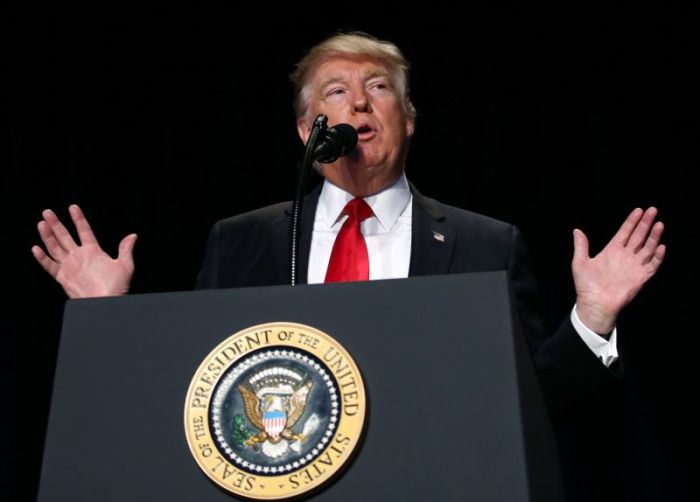Evangelical Leaders' Wheaton College Meeting Was Not Anti-Trump, Organizer Clarifies

While reports indicated that this week's invite-only meeting of about 50 prominent evangelical leaders was held to discuss the future of evangelicalism under the Donald Trump presidency, one of the event's organizers said that it was not designed to be "anti-anything."
Darrell Bock, executive director of cultural engagement at Dallas Theological Seminary, told The Christian Post on Tuesday at the conclusion of the two-day conference at Wheaton College in Illinois that the meeting was not organized as an avenue to simply criticize prominent evangelical leaders who strongly support the Trump administration.
"There are some false things that were already said about the meeting before it happened," Bock clarified.
"That was the idea that this had a political agenda to it and that kind of thing or that it was about being anti-one particular group, which it wasn't. It was about discovering with one another where we are and where we see things and how that relates to the ministries that we participate in."
The conference, he explained, was really planned to be an outlet for the leaders of prominent evangelical ministries, schools and organizations to be able to converse with each other on a "series of challenges approaching us from both the right and the left."
Discussions, he said, ranged from issues such as race and immigration to rule of law and abortion.
"The core topic that was addressed was thinking through the consistency of our Christian walk," he stressed.
"This is an issue of consistency. If you care about abortion, do you care about life on the other end? If you care about families, do you care about the way in which families get broken up in certain policy situations that we talk about? Flip it around. If you care about a stable society, do you care about the rule of law?" he noted.
"You got issues coming at us from either direction that put pressure on a consistent Christian way to respond to what is going on around us."
Those who attended the meeting included prominent pastor and author Tim Keller, New York City megachurch pastor A.R. Bernard, Fuller Seminary President Mark Labberton, Gabriel Salguero of the National Latino Evangelical Coalition, Trillia Newbell of the Southern Baptist Convention's Ethics & Religious Liberty Commission, Wheaton College's Ed Stetzer and Wesleyan Church General Superintendent Jo Anne Lyon.
World Relief's Jenny Yang and North Carolina Bishop Claude Alexander were co-chairs of the discussion.
"I think what you had is you had people in the room who voted for Trump. I think you had people in the room who either didn't cast a vote or voted for a third party candidate and you had some people in the room who voted Democrat," Bock said. "In that sense it was a big tent meeting."
The meeting did not include prominent evangelical figures who have served as informal advisers to the Trump administration, such as Franklin Graham, Samuel Rodriguez, Ronnie Floyd and others.
While Bock detests the notion that the meeting was an "anti-Trump" conference, some speakers and presenters at the conference expressed their dismay with the president and with today's American evangelicalism.
Journalist Katelyn Beaty, who live-tweeted the first day of the conference, quoted Alexander as saying: "How could white Christians mourn the deaths of the Charleston Nine but politically support a presidential candidate who appeals to the ideology held by the Charleston murderer?"
According to Beaty, Chicago pastor Charlie Dates stated during the meeting that "American evangelicalism has not been able to separate itself from the perks of white supremacy."
"We are discussing all that from a variety of angles," Bock said when asked about the tweets. "What tweets are snapshots. A quote by itself without a context doesn't actually help you understand what is going into that remark and that concern. You are getting small snippets of the whole thing into which not only were the points made, the points were responded to."
"I think what the meeting shows is that there are still a whole array of conversations with people in the group and some with people outside of the group and not necessarily represented in the group that we very much want to have and seek to pursue," he added.
Bock said that there will likely be future discussions held between evangelical leaders that will "fan out in all kinds of directions."
"I think the Church as a whole needs to ask itself — and I think this is what people are looking for — how do we consistently represent Christ in a challenging and polemicized environment to which we think He is very much the answer," Bock said.
Moving forward, Salguero expressed a willingness to have future conversations on the issues with evangelical leaders who have close relationships with the Trump administration.
"These are our friends," Salguero told CBN News. "It's not us against them."




























